Dan and Yoel Bar-Lev: "We Didn't Know How to Bridge Art and Torah Until Crisis Hit"
Dan Bar-Lev was born with a deep connection to painting but thought it had no place in serving Hashem, almost abandoning the craft. His brother Yoel had a similar journey, almost being crushed by the need to break away from his love of art. Through their crises, they discovered how to integrate it all and even launched a new startup, 'Comiculi'.
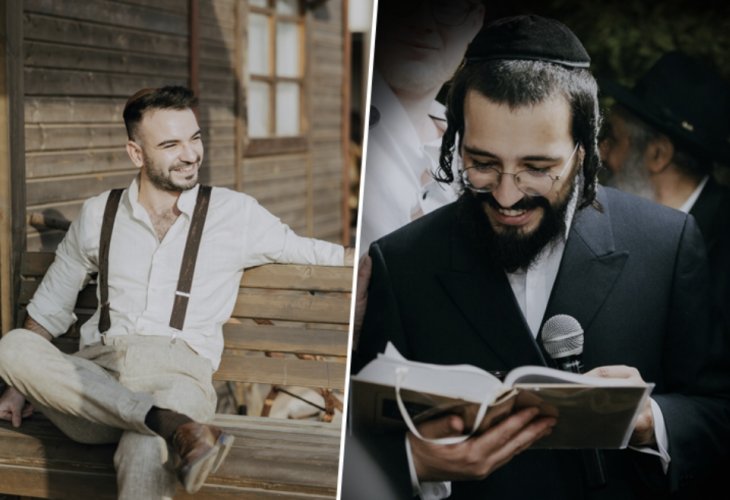 Dan and Yoel Bar-Lev
Dan and Yoel Bar-LevDan and Yoel Bar-Lev are brothers who engage in comic illustration, with numerous books passing through their hands. 'Titanic' and 'I Beat You, Eichmann', written by Rabbi Avraham Ohayon, are just examples. However, reaching this unusual career path wasn't easy for them. "From a young age, I would sit and draw for hours, but during my adolescence, I felt there was no room for my deep connection to art, only for Torah study," says Dan. "If not for the painful crisis I went through, it might have remained unfulfilled until today." Yoel also endured a painful journey. "Since I was young, I felt an attempt to uproot my connection to art, without giving me room to express it in my life, but my soul was embedded there, needing it like air to breathe."
I Pushed Too Hard and Broke
The Bar-Lev brothers began their childhood in France before immigrating to Israel at a young age. "I was 8 when we arrived, and Yoel was 3," Dan recalls. "We came to an absorption center and studied at a Talmud Torah where there were a few French kids among many Americans. I struggled to learn Hebrew or connect with new friends. Thus, I spent a lot of time in my own world of imagination, drawing for hours. For a long time, I didn’t progress in Hebrew studies and therefore struggled in school. In an effort to help me focus in class, my mother asked my teacher for approval to draw during lessons. I should mention that my mother, although a medical professional, has the soul of an artist, and seeing how connected I was to drawing, she found it important to give space to this creative side in me."
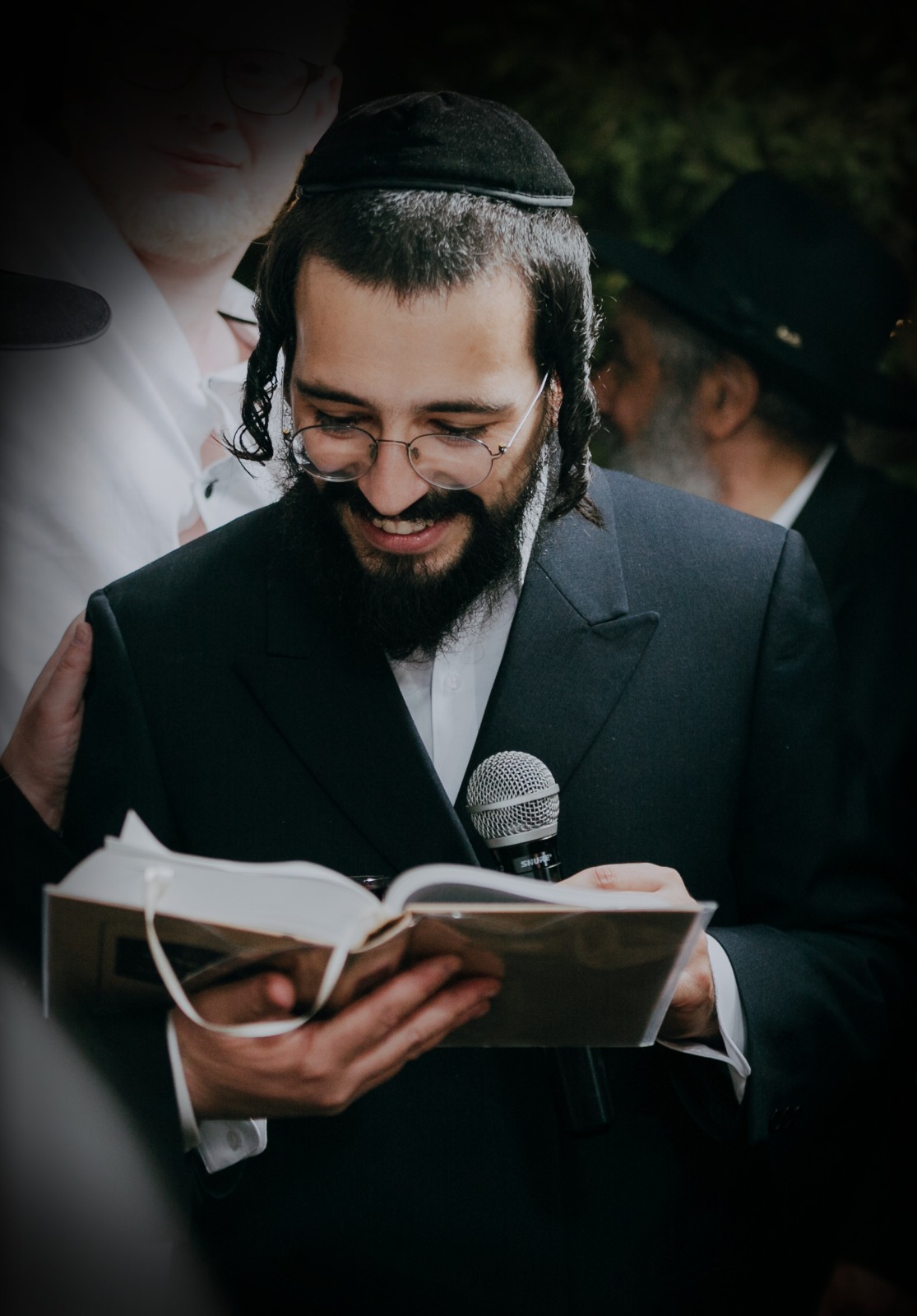 Dan Bar-Lev
Dan Bar-LevAt 13, a change stirred within Dan. "I finally advanced in Hebrew and felt a great need to get closer to Hashem. So, I began to invest more in serving Hashem and Torah study. It sounds wonderful, but internally I felt differently. I was putting all my energy into it, way beyond my limits. Outwardly, I was an outstanding student, but internally, I was under immense stress about my service to Hashem, holding myself to a very high standard."
What made you perceive things this way?
"It felt like the right thing, and I thought the essence of serving Hashem was to 'break the bad' in me and act against my less spiritual desires. Coming from a child's perspective, I took things to an unhealthy extreme. Adding confusion were stories of righteous people I read about, who fasted and practiced self-denial for spiritual growth. I wanted to be righteous, ready to give everything but with a wrong understanding of 'how to do it'. I worked with huge effort for three to four years until I couldn't anymore and broke. At 17, I wanted so much to continue but found myself unable to open a book."
Did you continue to draw during that time?
"I kept drawing, but I didn’t see where it fit in my Jewish world. In my mistaken view, there was room only for Torah study. But Hashem had mercy on me, allowing me to break, making space for creation in serving Him. It didn't happen immediately but took years to find that balance."
So, after a time split between home and yeshiva, Dan first connected to the professional comics world. "Seeing me idle at home, my parents realized I needed something to do. They took me to the renowned comic artist David Goldschmidt (known as 'Eli and Gold'), and illustrator Yoni Gerstein. Both handed me projects they couldn’t take due to time constraints. Through them, I met the well-known comics author Rabbi Avraham Ohayon, which started my initial projects."
Didn't your parents worry about your crisis?
"As ba'alei teshuva, my parents understood the need to combine worlds. It was clear at the crisis's peak that pressing more would be wrong, so they opted to give my spirit space with patience and faith, keeping me connected to Hashem. They were by my side in my darkest moments, trying to help as much as they could."
A New Crisis, A New Connection
Yet Dan's trials weren't over. "I began working as a comic artist, got married, and tried to start various businesses over the years, with some successes and failures. But, I still lived as a devout Charedi, doing what was necessary, viewing service to Hashem as stressful and intimidating. Keeping commandments felt like an obligation rather than genuine progress. I didn’t dare delve too deep, fearing pain from past experiences. In His grace, a new crisis emerged that wasn’t easy but birthed a new connection within."
At 28, amidst his business attempts, Dan faced a severe financial fall. "I fell into significant debt, and the hardship left me no choice but to look to the heavens and ask for help," he reveals. "It was time for a fresh start, at least to get back on my feet. I decided first to remove the internet from my home, even though I needed it for work and despite it being filtered. I was left only with email for work, which gave me much more peace of mind."
From this clarity, something new formed within Dan. "I saw that I could get through this period slowly and surely with Hashem’s help, and this calmness helped me truly reconnect to the Creator. I returned to kollel, and through conversations with friends, began to address the internal pains and questions I once avoided in youth. I started learning Chassidic teachings, especially from Chabad and Breslov, which transformed me completely. Suddenly, I discovered and felt the goodness of Torah and serving Hashem, realizing that the connection to commandments from love makes all challenges seem like nothing or even joyful tasks for the Creator. Where once I focused only on 'you shall listen to My commandments', concerned with rewards and punishments, this crisis steered me towards 'love', which is central to keeping commandments. Through these insights, my life came together, realizing how crises led me to self-fulfillment, both as an artist and a servant of Hashem. Today, I am a Breslov follower, living with my family in Yavneel, using my artistic talents to promote Hashem in the world."
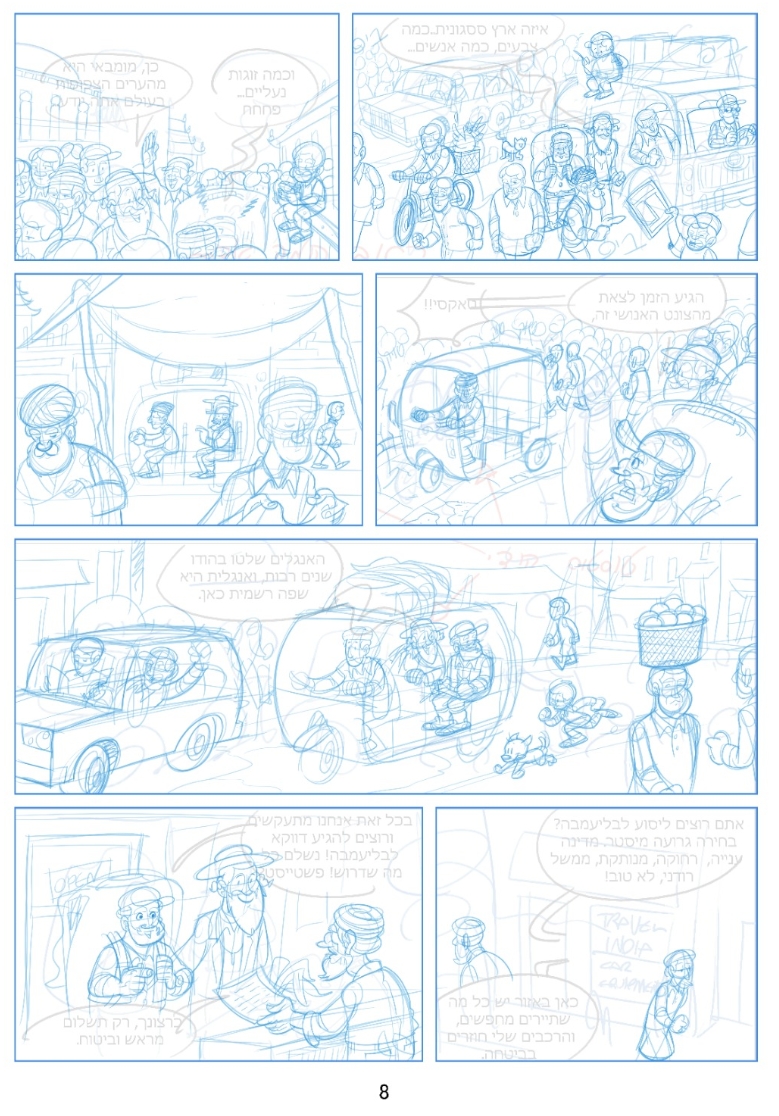
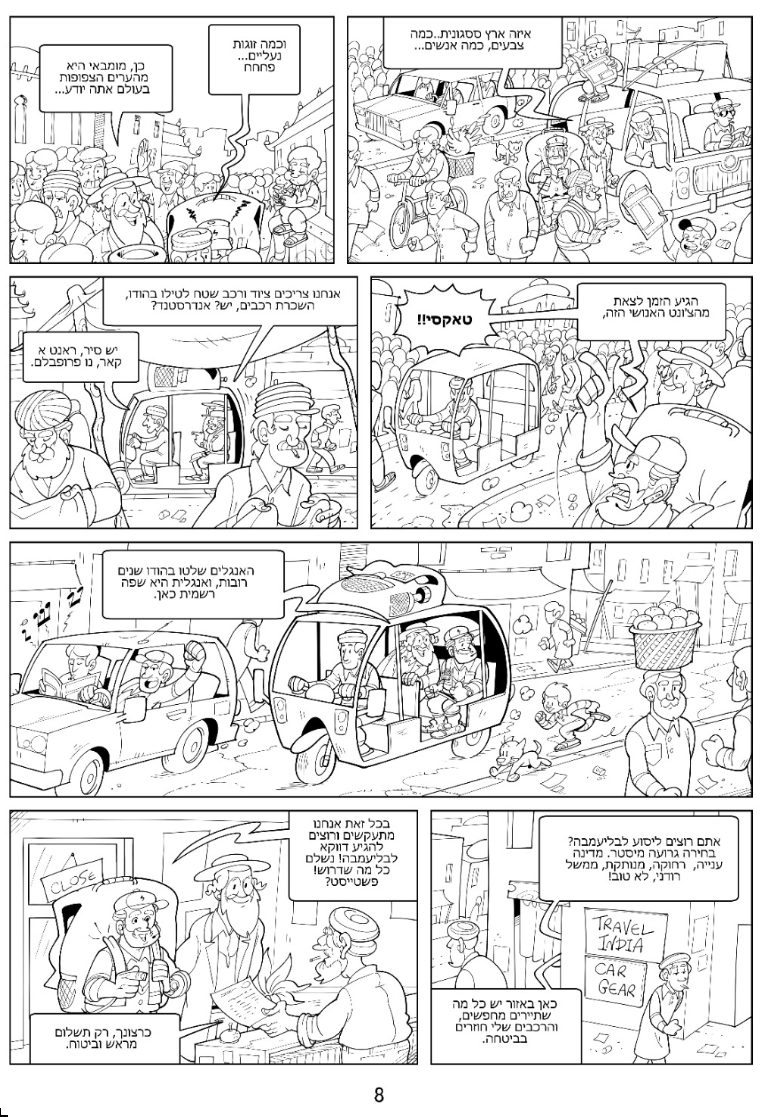
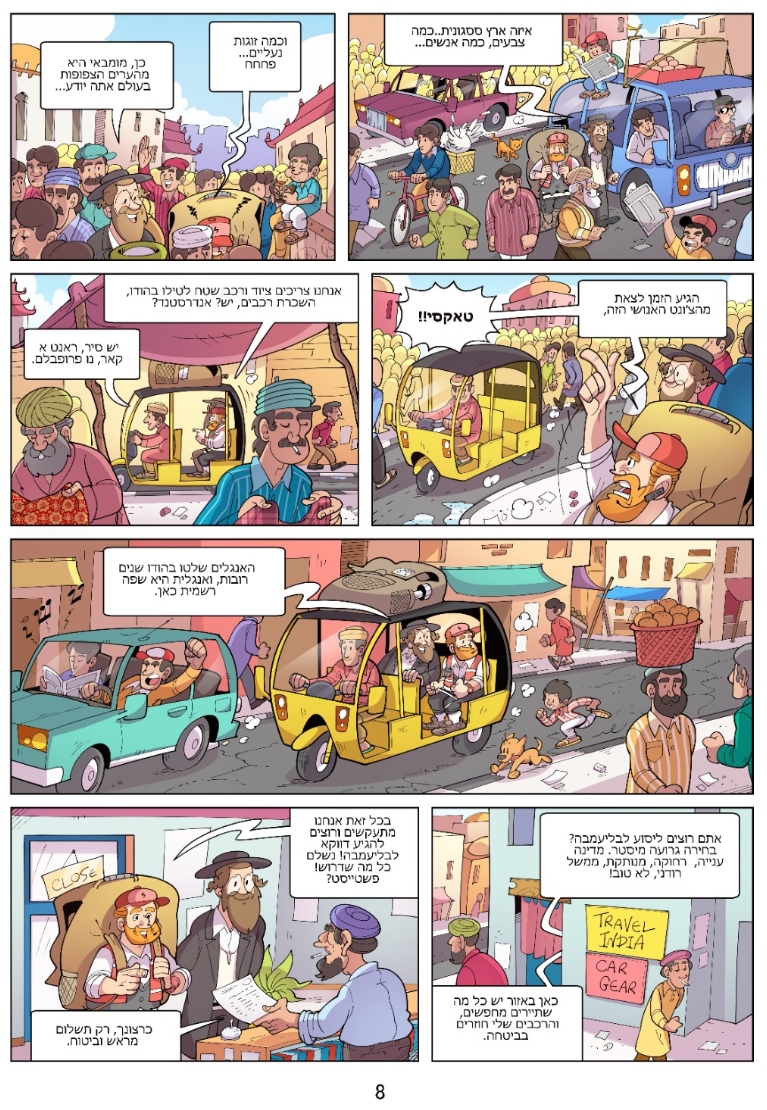
No Place for an Artist's Soul
Yoel, Dan's brother, experienced a similar journey. "From a young age, I was drawn to art, but I felt like people wanted it taken away from me. In the place I studied, there was no room for an artist's soul; a child who drew was considered problematic," he explains. "At 13, I felt an expectation to be serious and leave behind 'foolishness', which created a major schism in my soul connected to art like air. This led to many challenges during my yeshiva years, and only at 17, like Dan, did I realize there was a place for art in my life and the Jewish world. Over time, I discovered that comic consumers in Israel mostly came from the Charedi and religious sectors. In the general public, there were hardly any comics, most being imported and translated. Only then did it click that if there weren’t religious comic artists, no one would take up this work, so I began learning professional art from Dan."
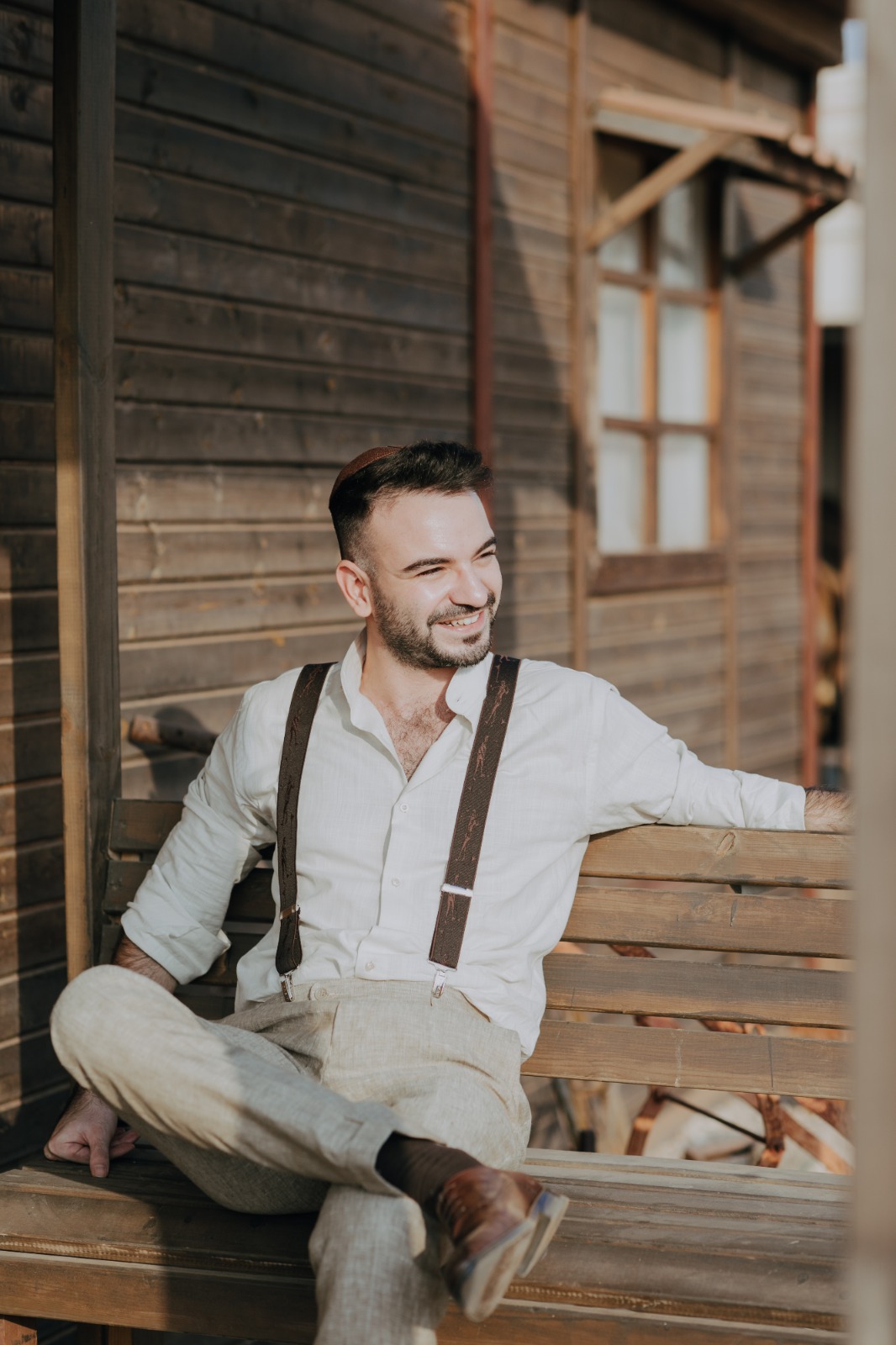 Yoel Bar-Lev
Yoel Bar-LevGiven the crises you faced, how did you not leave the Torah path?
"I didn’t leave because, despite the pain, it built something else within me. I grew up in a place that didn’t allow room for art but deeply rooted a connection to Hashem in me. Plus, I was blessed with many good educators along the way who helped guide me towards a healthier, more connected self. Once this connection formed, the desire to create found its right place, and more so, I felt a need to give and influence, especially within the religious community. I felt it right to help others undergoing similar journeys of returning to a joyful life of mitzvah observance, truly becoming who they are."
Talking Comics
Today, after a long period illustrating for others, the brothers decided to take the next step. "We released a book called 'Eli Copter', which we wrote and illustrated ourselves, but it doesn’t end there," they mention. "We created a new comic format called 'Comiculi'—a blend of comics with sound effects. The twist we introduced was breaking the book into panels, making an animated presentation of the texts. Everyone who saw the Comiculi was captivated from start to finish. Soon it will be available on the children's section of the 'Hidabroot' website for subscribers."
The advantages of "Comiculi" over a regular film are clear to the brothers. "It's not as overwhelming or overstimulating as an actual movie, yet it still leaves a door open for imagination. The storyline offers meaningful Jewish content, presented in a new and interesting format. Moreover, costs of producing animated films are enormous, whereas here we created something with relatively low costs, allowing audiences to enjoy excellent educational Jewish content at a low price. When we were kids, we listened to many stories on audio tapes and were enchanted by the beauty and rich worlds they provided. Today, with media evolving visually, we find it important to provide equally interesting and diverse stories that enrich children's worlds using the tools developed since then."
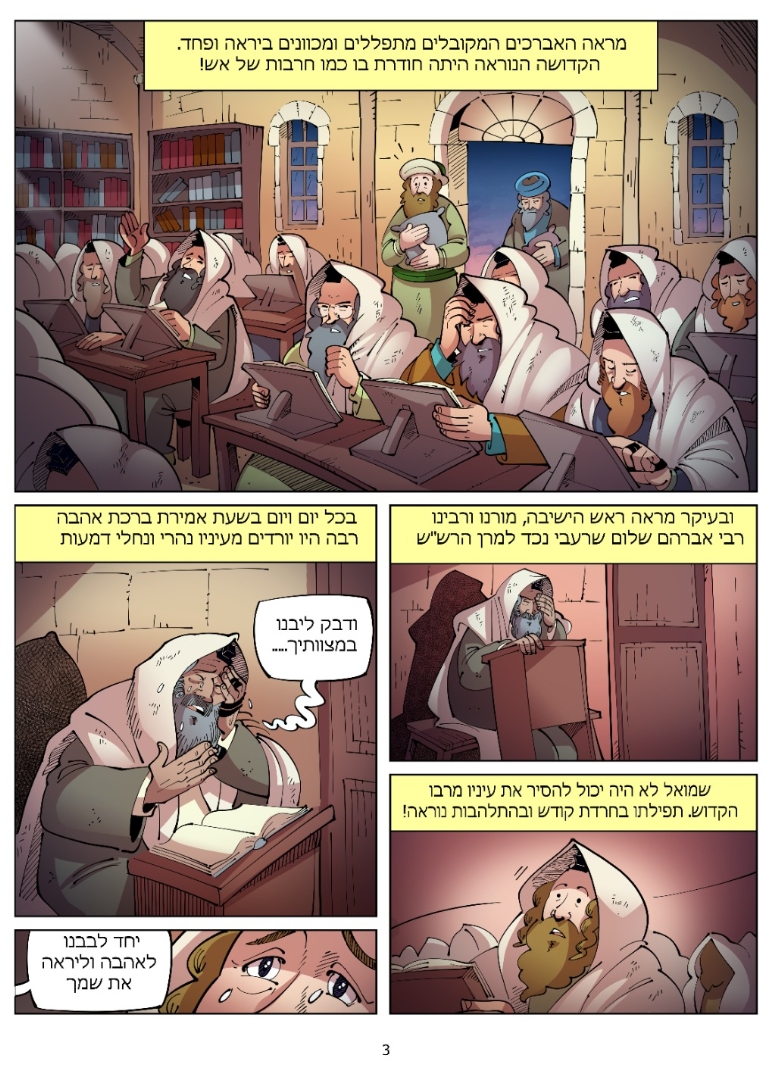
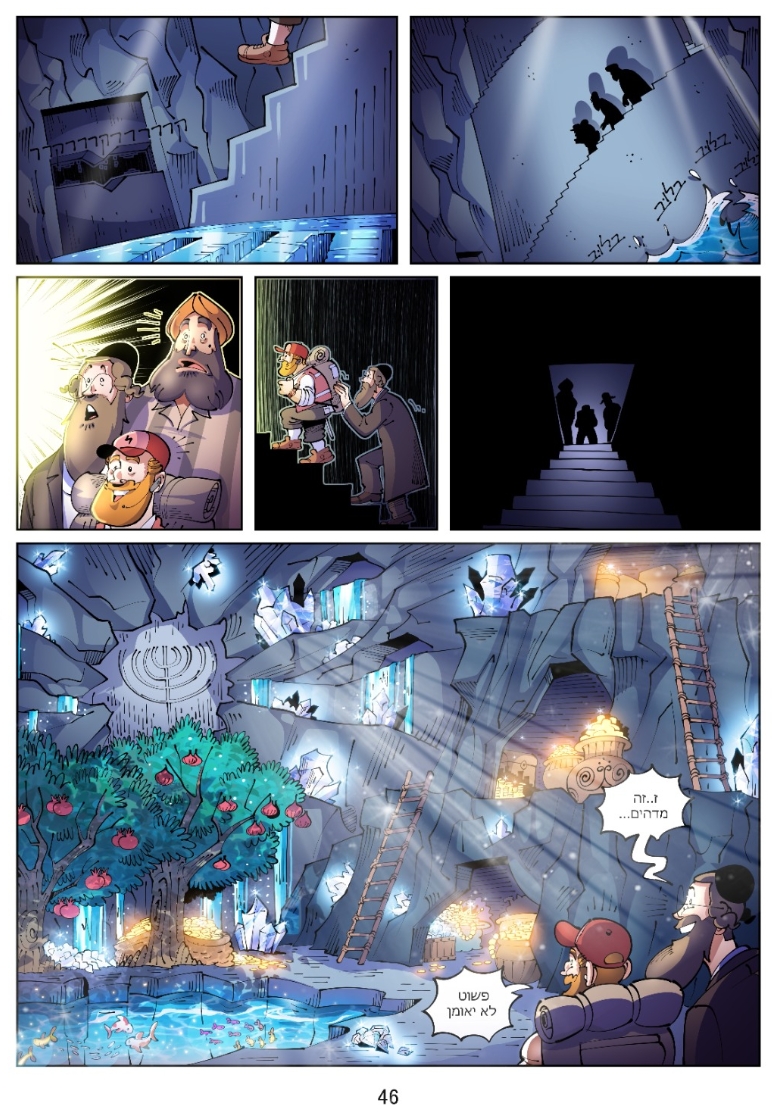
Finally, Dan says, "Rebbe Nachman of Breslov says seclusion has an advantage over prayer because destructive forces know prayer and block it, but seclusion is a new path they don't know. Our sense is these negative forces know standard outreach methods, but comics don’t seem like a logical approach to them, which is why they aren’t present there. For us, comic art is an excellent tool to convey faith, joy, and confidence to children through fascinating and worthy content that positively influences them. This is our mission, and through it, we hope to spread the knowledge of Hashem in the world."

